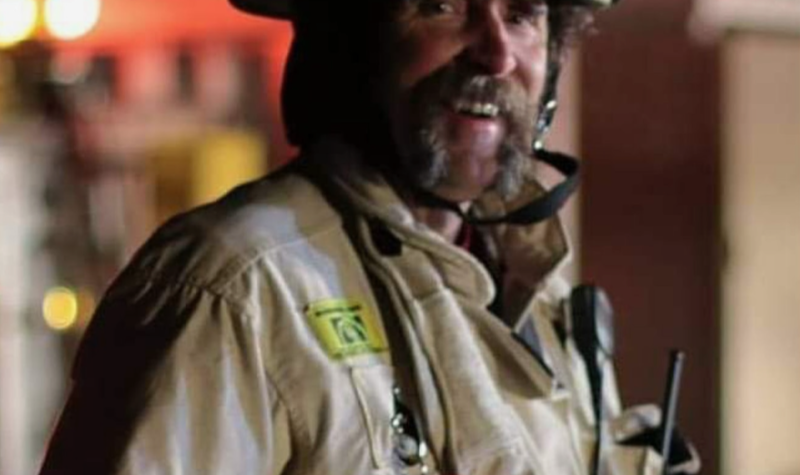The first people on the scene to Sunday night’s tragic collision were Sackville Fire Department volunteers. The SFD received the call through 911 along with Ambulance NB and the RCMP. An ambulance arrived at the scene 27 minutes after a 911 call was received, and the RCMP arrived sometime after that. According to witnesses, SFD volunteers were quick to the scene and active in helping out, however, limited in what they could do. Although Sackville firefighters are trained in workplace first aid and CPR, they are not trained as medical first responders, as their counterparts at the Dorchester Fire Department.
About 80% of the firefighters in the Dorchester Department are trained as medical first responders, says fire chief Greg Partridge. That means they undergo additional training and are able to do things like administer oxygen and operate defibrillators.
With Dorchester farther away from an Ambulance NB station than Sackville, the extra training for the fire department volunteers has come in handy many times, says Partridge. “On a good day, [Ambulance NB is] 15 minutes away. We’ve had response times an hour or so,” says Partridge. “And it doesn’t really seem to be getting any better.”
Partridge says he thinks about half of the calls the department receives are medical calls, and depending on the situation, the early medical intervention can make a big difference. In the case of something like a heart issue where a defibrillator is called for, “it’s minutes that count,” says Partridge. “The faster you can get a defib on somebody, especially if they have a heart issue, the more likely they will come out of it and move on.”
Partridge says the training has been standard in Dorchester for roughly the last 15 years, though it is also optional for volunteers. Not everyone can handle the situations with medical calls, says Partridge, which may include blood, or children in distress. “If they don’t choose to, they are just firefighters,” says Partridge,” and they do a great job at that.”
The extra medical first responder training was in place eight years ago when a woman died from choking at the Bell Inn, just down the street from the Dorchester Fire Department. In that incident, the fire department was not called, even though their training could have saved the woman’s life. These days, the 911 dispatch centre automatically calls the Dorchester Fire Department to all medical calls in their region.
Medical first responder training involves a weekend course every two years, and biweekly medical training as part of the Dorchester Department’s regular training schedule.
Partridge says Sackville’s decision not to undergo medical first responder training could have to do with the closer access to Ambulance New Brunswick, but he thinks it could also be something up for change once the new municipality takes over in January.
“They had never gone into the medical side of it because they felt that there was an ambulance on site all the time anyway,” says Partridge. “But there actually isn’t. They’ve discovered that over the last year or so.”
He wonders if the amalgamation of Tantramar will make a difference. “Since we’re all going to be under the same umbrella type thing with Tantramar,” says Partridge. “I think they’ll be looking at it. Whether they’ll actually start being medical first responders, I’m not sure.”
The possibility of introducing the training to the Sackville Fire Department has caught the attention of at least one newly elected Tantramar councillors. Josh Goguen says he will try to bring up the matter with the new council in 2023.
In response to a CHMA enquiry about first aid training at the Sackville Fire Department, Chief Craig Bowser said, “members are trained in Workplace First aid/CPR, and they practise within these skillsets when responding to various calls.” Bowser did not respond to a question about the consideration of other medical first aid training options.


